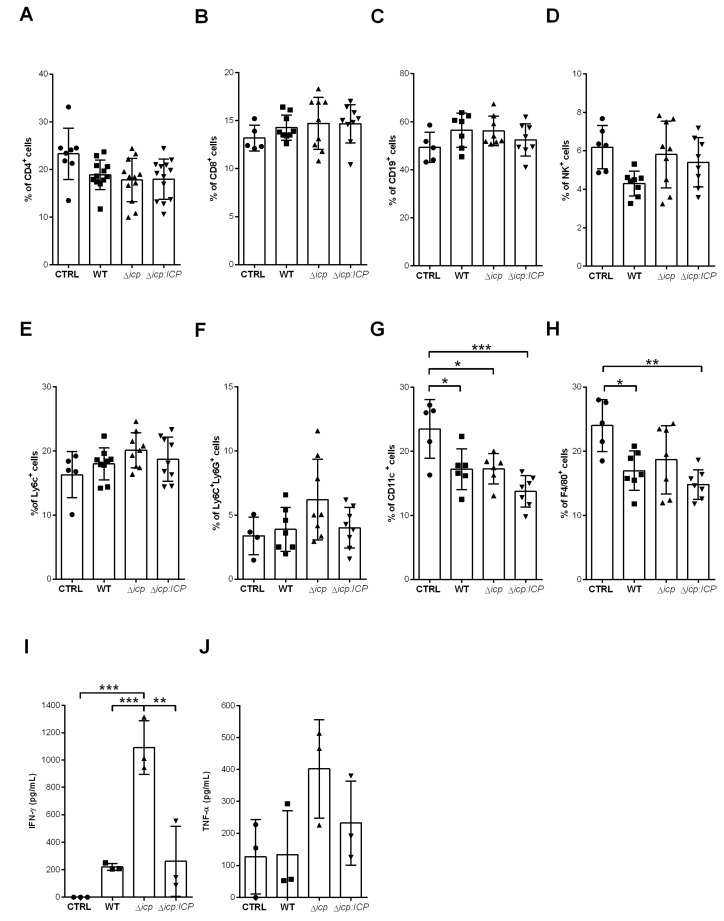Figure 9.
T. b. rhodesiense Δicp induces higher inflammatory response in the spleen during early infection of C57BL/6 mice. C57BL/6 mice were infected with BSF parasites of T. b. rhodesiense WT, Δicp, and Δicp:ICP (1 × 105 parasites per animal). On the second day post-infection, mice were euthanized, spleens were removed and macerated, then the splenocytes were submitted to flow cytometry or were cultured for 24 h, after which the supernatant was collected and cytokine levels determined by ELISA. The splenocytes were submitted to flow cytometry to assess expression of (A) CD4, (B) CD8, (C) CD19, and (D) NK1.1 within the total cell population. The proportion of the (E) Ly6C+Ly6G− and (F,L) Ly6C+Ly6G+ populations within the CD11b+ was determined, while the expression of (G) CD11c and (H) F4/80 within the total cell population was assessed. Graphs show individual points representing each mouse sample and the mean ± SD of two independent experiments combined (n ≥ 3 per group per experiment). The splenocyte culture supernatants were tested for (I) IFN-γ and (J) TNF-α. CTRL represents the non-infected control that was injected with RPMI medium. Graphs show individual points representing each mouse sample and the mean ± SD of one experiment (n = 3 or 4 per group per experiment) and are representative of the profile of two independent experiments. Asterisks indicate statistical significance at p < 0.05 (*), p < 0.01 (**), and p < 0.001 (***) as assessed by one-way ANOVA with Tukey’s post hoc test.

